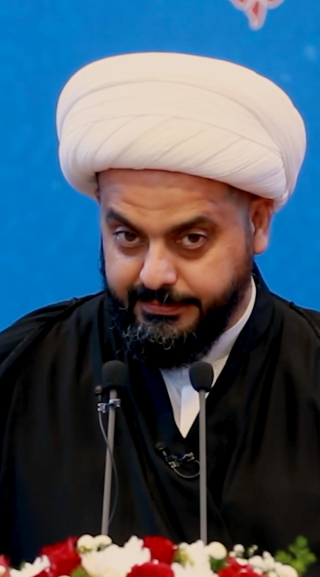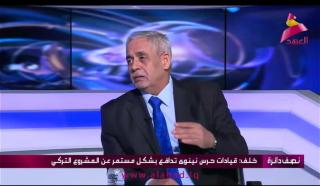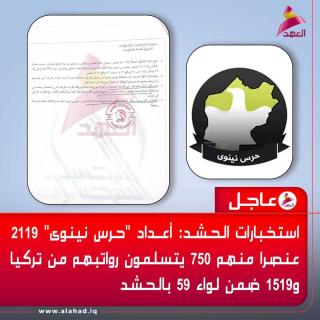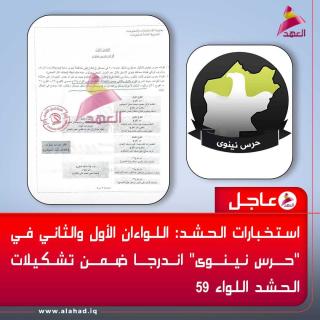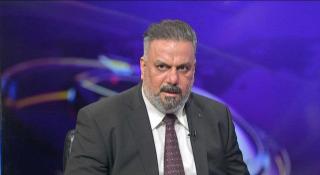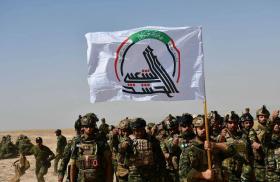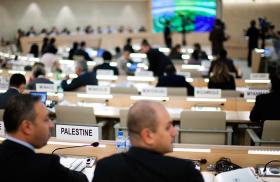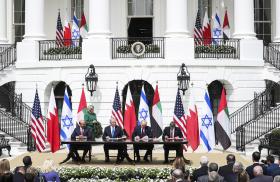
Asaib Ahl al-Haq Accuses Faleh al-Fayyad of Turkish Collusion

The militia continues to battle with the PMF secretary-general, this time highlighting his alleged promotion of Turkish interests in the hope of undermining him.
A political dispute between the Iraqi Shia militia Asaib Ahl al-Haq (AAH) and Popular Mobilization Forces (PMF) Chairman Faleh al-Fayyad—originally centered on the proposed PMF Service and Retirement Law—has escalated into a more serious confrontation. AAH has launched a campaign accusing Fayyad of advancing Turkish interests, signaling a deepening rift within the Coordination Framework as muqawama (resistance) leaders prepare for the parliamentary election scheduled to take place November 11.
The first public salvo came on March 31, when AAH Secretary-General Qais al-Khazali used his Eid al-Fitr speech to allege the following: “There are militias that include thousands of fighters who have been trained, financed and led 100% by Turkey...They are Iraqis from the provinces of Nineveh and Kirkuk and sent to Turkey, where they were trained...Some of them still receive salaries from Turkey. Their official name is the Nineveh Guard Forces and the Kirkuk Shield Forces. A section of them was incorporated into the Popular Mobilization Forces...and they receive salaries under the name of the PMF, specifically in the 59th Brigade in Nineveh. I call for an investigation [into this matter]” (Figure 1).
Khazali’s accusations set the stage for heightened media and political attacks against Fayyad. On April 15, AAH’s al-Ahad TV hosted Maj. Gen. Abdul Karim Khalaf, the spokesman for the commander-in-chief of the armed forces under former Prime Minister Adil Abdulmahdi and now closely aligned with AAH. During the interview, Khalaf stated, "Fayyad traveled in a VIP jet on three secret visits to Turkey at one of their military bases. He conducted those visits not just to incorporate those forces, but to explain to the Turks that the PMF are not against Turkey" (Figure 2). By "incorporate those forces," the general meant bringing the Nineveh Guards and Kirkuk Shield into the PMF.
These allegations represent an unprecedented direct attack against Fayyad, essentially accusing him of being an agent of Turkey. AAH has relied on a former high-ranking official to publicize these accusations, likely in an effort to lend credibility to the claims and further undermine Fayyad’s reputation.
On April 16, al-Ahad TV published purported internal documents attributed to the Intelligence and Information Department of the PMF’s General Directorate of Information. The documents alleged that the Nineveh Guards totaled 2,119 personnel, with 750 allegedly receiving salaries from Turkey and stationed at Zilkan base, and 1,519 operating under the PMF’s 59th Brigade—a numerical breakdown that does not add up (see Figure 3). The documents also provided details about the group's leadership and deployment, portraying the Nineveh Guards as de facto Turkish proxies (Figure 4).
These accusations were soon echoed by political figures. Alla Sabah al-Haidari—a Basra-area member of parliament closely aligned with the muqawama—appeared on al-Ahad TV to praise Khazali for bringing to light what he described as a major security threat. He claimed that the Nineveh Guards and Kirkuk Shield were "Turkish-made" and accused President Recep Tayyip Erdogan of seeking a presence in Iraq. Haidari added that Iraqi intelligence agencies had confirmed these movements after Khazali brought them to public attention, warning the people of Mosul and Kirkuk to "be prepared to fight" those forces, as they could "ravage the cities" at any moment (Figure 5). Notably, the Zilkan base mentioned above has been attacked on numerous occasions by muqawama rockets and drones.
Despite sustained efforts, AAH has so far failed to remove Fayyad from atop the PMF, largely due to the backing he receives from Prime Minister Mohammed Shia al-Sudani and Iran. Frustrated by this political deadlock and the withdrawal of the PMF Service and Retirement Law, AAH has escalated its campaign to an unprecedented level, openly accusing Fayyad of colluding with Turkey and mobilizing media and political allies to amplify the charges. This marks a notable shift in the group’s posture: it is no longer content with behind-the-scenes maneuvering and appears increasingly willing to go head-to-head with its Shia rivals in the Coordination Framework. With parliamentary elections looming in November, the confrontation is a clear sign that intra-Shia power struggles are intensifying—and spilling further into the open.
